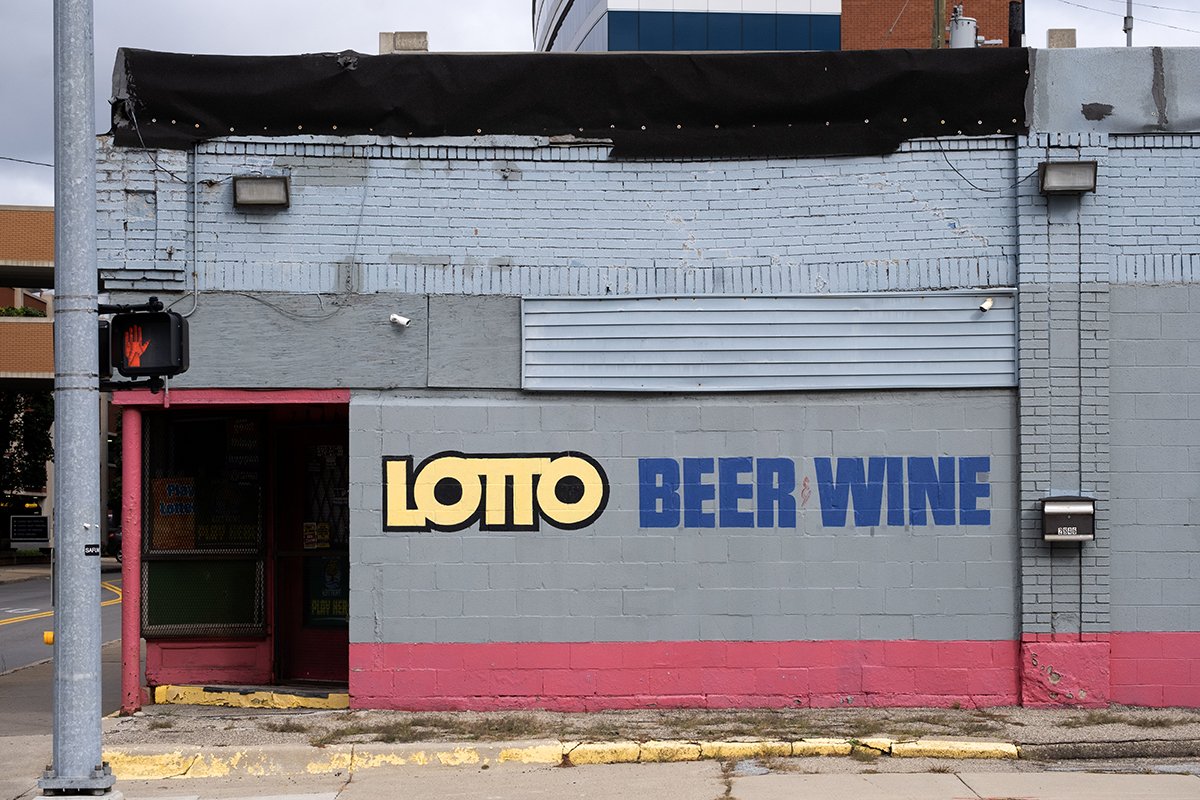2846 Trumbull Street
Wright & Parker Company Chain Store, Murad and Jacob Thomas’ Store, Temple & Trumbull Market












This structure was built in the 1910s. At the time, it was in the middle of a thriving neighborhood. Its original address was 442 Trumbull Street.
By 1920, the shop was a Wright & Parker Company Chain Store. It may have been built for that purpose, but I’m unsure. That year, the address was featured in an advert for Wilson’s Certified Margarine and Nut Margarine. In 1921, the address changed to 2846 Trumbull. By 1922, there were at least 55 Wright & Parker Company Chain Stores across Metro Detroit, including the one pictured here.
After that, I’m unsure what happened to the structure for a few decades. By 1944, it may have been a bar or liquor store. That February, the distributors’ license of Murad and Jacob Thomas was canceled for selling to minors. By April 1950, Murad had gotten his license back but was still selling to minors. He received a 15-day suspension and a $100 fine.
In 1971, the structure had become a grocery. There may have been two units here at one time, but I believe it had been converted into one by this point. Called Temple & Trumbull Market, the operation was run by Abdul Muhsin Gallozi, an immigrant from Iraq. According to the Detroit Free Press, he came from Baghdad to America on a student visa in 1953. After returning to Iraq, he began preparing documents to move to the United States full-time. In May 1966, he was able to move back.
After five years in the States, he had fulfilled the half-decade residency requirement and could apply to become a United States citizen, something his friends said meant the world to him. His love for the USA made the application simple, but it would cost him his life.
A little over a week before his interview appointment with the United States Immigration and Naturalization Service, Cayetano Solis wandered into his grocery looking for tomatoes. Solis, described as a Mexican immigrant, began berating America and saying how much better he was than any American. Phyllis Roberts, a clerk, said that Gallozi replied, “You have come to this country and you are making a good living here. And then you are putting America down. If you don’t like it here, why don’t you go back where you came from?”
Solis continued to argue and wouldn’t leave the store. Eventually, Gallozi said, “You’re an old man. I don’t want to argue with you. Will you please leave?”
Shortly after, the old man pulled out a .32 caliber revolver, pointed it at Gallozi, and shot him twice. Luckily, a customer was in the store to jump Solis, take the gun, and wait for police to arrive and arrest him. Gallozi was taken to Detroit General Hospital, where he died nearly 12 hours later.
Solis was charged with second-degree murder, and Senator Robert P. Griffin tried to get Gallozi a posthumous letter of American citizenship. Gallozi, a member of the Metro Detroit Chaldean community, was remembered fondly by many, including his customers.
Gallozi’s posthumous citizenship was granted, which brought tears to his brother’s eyes. More than 500 people came to his funeral, according to the Detroit Free Press. Although Chaldeans started arriving in Detroit decades earlier, this era saw higher numbers than before coming to Metro Detroit due to the Immigration and Nationality Act of 1965. Chaldean Town was bolstered, but crime at Chaldean-owned retail and groceries eventually led the population to leave the city limits, among other reasons, including population loss. Numerous Chaldeans were killed at their stores in this era of Detroit, but Gallozi’s story is heartwrenching.
After that, the store remained open. In 2000, it was managed by Stacy Markham. In 2016, it was run by Sharky Katty. During football season, Cass Tech players frequented the shop to buy water and Gatorade on their way from school to Burton International Academy off MLK, where practices were held at the time. However, kids buying snacks couldn’t keep the business alive.
The structure slowly deteriorated, with the business eventually closing its doors around 2019. Since then, it’s sat vacant in the shadow of Motor City Casino, which opened in 1999. The hotel tower, which dwarfs the little corner store, was completed eight years later. When proposed, the casinos were supposed to help the surrounding businesses. After opening, Markham, then manager, said, “Our business picked up a little, but not like we thought it would. The employees buy cigarettes and lottery tickets, so it helps a little. It keeps the traffic going around here.” Because of the casino, the structure has consistent traffic at all times of the day, even sitting vacant.
The structure is currently listed for $499,000. It’s available on a land contract with 30% down, but the price seems exceedingly high for the current state of the building. However, given its location next to Motor City Casino and Corktown, a buyer may come out of the woodwork.
Small structures like these are disappearing from the landscape of Detroit by the dozen. Although they might not hold the highest architectural significance, they are part of what makes Detroit unique. Hopefully, this one will see new life. If it does, there should be a plaque telling the story of Abdul Muhsin Gallozi.
